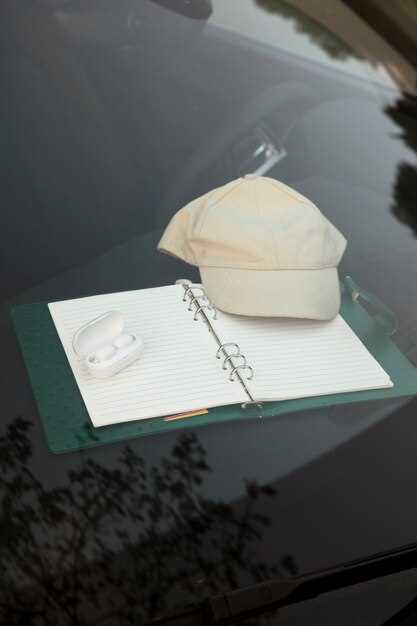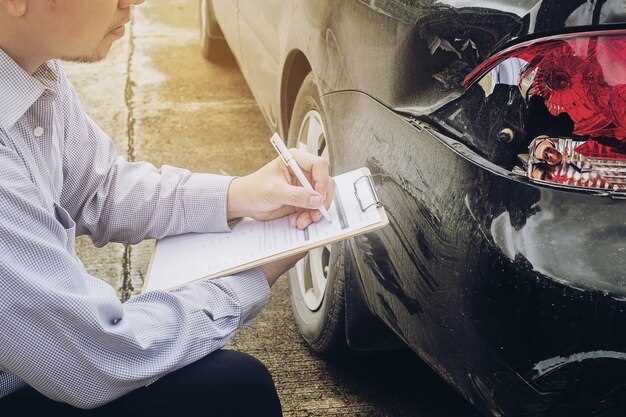
When dealing with various types of repair work, particularly those related to property damage or theft, a common question arises: Is a police report necessary? The answer can depend on several factors, including the nature of the incident, the type of repairs needed, and the policies of the service providers involved.
For instances where damage results from criminal activity, such as vandalism or break-ins, obtaining a police report is often crucial. Many repair companies, insurance agencies, and even law enforcement may require this documentation to proceed with claims or to ensure that the work performed is legitimate and warranted. Having an official report can facilitate the process and provide necessary validation for the repairs being conducted.
Furthermore, understanding the legal implications of your situation can guide your decision regarding a police report. In some cases, local regulations may mandate reporting certain types of incidents, especially when they involve significant damages or risks to public safety. If you find yourself in a precarious situation, consulting with law enforcement or legal experts might be beneficial to ensure compliance and protect your rights.
In contrast, if the repair work pertains to non-criminal issues, such as wear and tear or normal accidents, a police report may not be required. Homeowners and businesses typically approach such repairs directly with contractors or service providers, focusing on the assessment and execution of the work rather than documentation of criminal activity.
Understanding When a Police Report is Required for Property Damage
In many situations involving property damage, the necessity for a police report can significantly influence the repair process, insurance claims, and legal responsibilities. Generally, a police report is required in cases of vandalism, theft, or accidents that cause significant structural harm to property. Engaging law enforcement helps create an official account of the incident, which may be crucial for future claims or legal proceedings.
If the damage results from a vehicle accident, a police report is typically mandatory, especially if injuries occurred or if the damage exceeds a certain monetary threshold. This report provides a detailed account of the incident, including statements from involved parties and witnesses, which can provide critical evidence in liability disputes.
In instances of natural disasters, such as storms or floods, a police report might not be necessary. However, documenting the damage and notifying authorities assists in tracking incidents that may affect insurance or future municipal responses.
For incidents like vandalism or break-ins, a police report serves not only as documentation for insurance claims but also aids authorities in identifying crime patterns in specific areas. Prompt reporting can enhance the chances of recovering stolen property and deter future crimes.
Some insurance policies explicitly require a police report for claims related to property damage. Always check your policy details to understand the specific requirements. In the absence of a police report, you may face challenges during the claims process, potentially affecting your compensation.
In summary, understanding when a police report is necessary for property damage is essential for properly navigating repairs, ensuring compliance with insurance requirements, and safeguarding your legal rights. Always assess the situation and consider reporting to law enforcement whenever in doubt, as it may provide essential documentation for your case.
Steps to Obtain a Police Report for Insurance Claims

To file an insurance claim after an incident, obtaining a police report is often essential. Here are the steps to obtain this document effectively.
1. Contact the Police Department: Start by reaching out to the local police department that responded to the incident. You can find their contact information on their official website or through local government listings.
2. Gather Necessary Information: Prepare information that may be required when requesting the report. This typically includes the date, time, and location of the event, as well as any report number if available. Having personal identification ready will also be beneficial.
3. Request the Report: Depending on the department, you can request the police report either online, by phone, or in person. Check the department’s website for specific procedures, as some may allow you to access reports digitally.
4. Complete Required Forms: If the police department requires a formal request or specific forms to be filled out, ensure you complete these accurately. Some departments may provide downloadable forms on their websites.
5. Pay Any Applicable Fees: Be prepared to pay a small fee for the report. Fees vary by jurisdiction, so check with the police department to confirm the amount and acceptable payment methods.
6. Wait for Processing: After submitting your request, it might take a few days to a couple of weeks for the report to be processed, depending on the department’s workload and policies. Keep this in mind when planning your insurance claim timeline.
7. Receive the Report: Once processed, you will receive the report via mail, email, or in person, depending on how you made your request. Review the document for accuracy before submitting it with your insurance claim.
8. Submit to Insurance Company: Include the police report with your insurance claim submission. Ensure that you follow your insurance company’s guidelines for documentation for a smoother claims process.
How to Communicate with Repair Services Regarding Police Reports

When contacting repair services following an incident that requires a police report, clarity is essential. Start by providing a concise overview of the situation. Clearly explain the nature of the incident, the type of damage sustained, and why a police report is involved. This sets the context for the repair service and allows them to understand your needs better.
Gather Relevant Information: Before reaching out, gather all pertinent details, including the police report number, names of involved parties, and any other relevant documentation. This information is crucial for the repair service to assess the situation accurately.
Specify the Required Repairs: Clearly outline the repairs needed and how they relate to the incident. If certain damages are directly linked to the police report, make sure to highlight these aspects. This will help the repair service determine the scope of work and associated costs.
Inquire About Their Process: Different repair services may have varying requirements when dealing with police reports. Ask them how they prefer to receive reports–whether electronically or in hard copy–and whether they need any specific forms filled out. Clarifying this upfront prevents delays later in the process.
Discuss Payment Options: In cases involving insurance, communicate with the repair service about how payments will be handled. Confirm whether they will bill the insurance company directly or if you need to pay upfront and seek reimbursement later. Understanding this aspect helps alleviate financial concerns during the repair process.
Establish a Timeline: Repair services often need to assess damage before providing a timeline for completion. Ask them about their estimated timeframe based on the details you’ve provided, and be sure to inquire how the police report may affect this timeline.
Follow Up: After your initial discussion, follow up to ensure everything is progressing smoothly. Regular communication helps maintain a good relationship with the repair service and ensures that all necessary documents are in order.
By clearly articulating your needs and understanding the procedures involved, you can effectively communicate with repair services regarding police reports, ensuring a smoother repair process.

